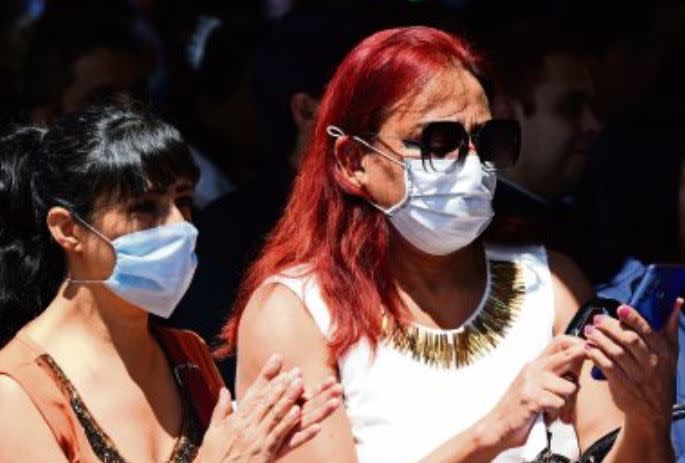
MEXICO CITY, January 24 (EL UNIVERSAL) – Last Monday, the Ministry of Health published the Weekly Epidemiological Surveillance Report on Influenza, Covid-19 and Other Respiratory Viruses in 2024, which stated that there have been 390 positive cases so far this year due to the SARS-Cov-2 has been registered; therefore, noted the infectologist Alejandro Macias, although “we have low levels of Covid-19, we must be wary of the strong arrival of the Pirolla variant in Mexico”.
The news alarmed some users, who questioned how to know if it was pneumonia, coronavirus, the flu or the common cold due to the low temperatures seen in recent days.
In view of the increasing number of cases of Covid-19 infection, it is very important to know the types of existing respiratory diseases and their symptoms in order to prevent them. If you are one of the people who do not know how to identify these diseases, please click here. We are following the Mexican Government’s The website leaves you with the difference.
Got a cold. Symptoms of this disease that typically affect most people are a stuffy or runny nose, coughing, sneezing, watery eyes, and in some cases, fever and sore throat. This lasts approximately three to five days.
influenza. Its virus spreads rapidly from person to person through saliva. It’s similar to a cold, but more intense. Symptoms include fever, headache, chills, dry cough, sneezing, sore throat, tiredness and general malaise. If the condition worsens, it can damage the lungs and bronchi until death.
Coronavirus disease. The illness is similar to the flu, but a different symptom is loss of smell or taste.
pharyngitis. As the name suggests, it is an inflammation of the pharynx or throat caused by the flu or cold. Symptoms are severe pain in the area, fever, headache and muscle aches.
pneumonia. In this disease, the lungs often become inflamed. Symptoms are fever, chills, cough with phlegm, chest pain when sneezing or coughing, loss of appetite and difficulty breathing.
The World Health Organization (WHO) notes that the risk of Covid-19 infection spreads more in crowded and poorly ventilated spaces, which is why the international organization recommends avoiding it.
Likewise, it invites people to gather outdoors because they are safer than indoors, especially when indoor spaces are small and lack outdoor air circulation.
If crowds or confined spaces cannot be avoided, the following precautions should be taken: open windows in confined spaces for natural ventilation and wear masks.

